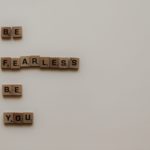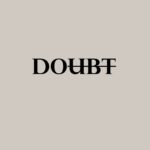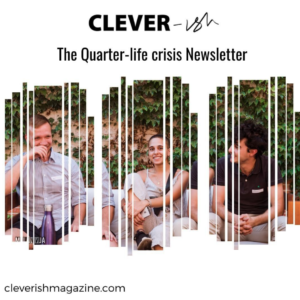
As a kid, it was easy to dichotomize everything into good and bad. In my early teenage years, I soon realized that the older you get, the more you’re faced with ethical dilemmas, moral conundrums, and internal conflicts. What do you do when you’re confronted with issues that you can’t easily fit into the good or bad boxes? What do you do when life throws you curveballs?
I’m currently studying for a Master’s in Media Management at The New School. Last spring, just before the pandemic upended our lives, I took a Media Ethics class. This was an exceptional class as the teachings, readings, and class conversations challenged like never before. I learned to critically weigh my values and beliefs against real-life scenarios. I had to confront the viability of my own beliefs, and acknowledge how my milieu influenced my ideologies. When you do this, you get knocked off your high-horse pretty quickly.
In the course of the Media Ethics class, we had to develop and write our personal ethics code. I found this exercise very helpful tool for self-awareness and critical thinking. I think everyone should take a stab at writing a personal ethics code, even if it’s a few paragraphs.
Writing a personal ethics code helps you decide who you want to be. It helps you identify and choose the values and things you never want to compromise on in both your personal and professional life. If you don’t figure this out early on, you could find yourself flip-flopping at every turn.
To thine own self be true, and it must follow, as the night the day, thou canst not then be false to any man. – William Shakespeare
For example, your core value might be that you don’t steal. However, when building your code you need to prepare yourself for real-life scenarios and ask yourself more direct questions. If you get a bill and you’re charged less than you owe, will you speak up and pay the full amount? Will you tell a lie to protect a friend? Do you value people over things? Will you break verbal agreements if you knew there were no consequences to you? What companies or industries do you never want to work for? As a journalist what journalistic practices do you personally refuse to apply? What do you stand for? What are you against? These are some issues you can address in your personal ethics code.

Consciously and subconsciously, we’ve learned, inherited, and copied most of our values from religion, our parents, our favorite TV or book characters (I’m a Gryffindor *wink*), etc. While this is a good place to start, it’s usually not enough —especially as you get older. To be your unique and most authentic self you must do some work. Writing your personal ethics code is one major way to work towards that.
As you get older, you can add and adjust your code to reflect the person you’re becoming and the growth you’ve achieved. I appeal to you to not edit your code every two days to fit in with changing circumstances. You’re to live by the code and not the other way around. Your opinions and preferences change but our core values should remain unchanged. And these values should serve as a base for your code.
Below I share an excerpt from my personal ethics code. If you want to read the entire thing, send me a message l and I’ll share it with you.
JIJI MAJIRI UGBOMA—PERSONAL ETHICS CODE
April 14, 2020
I was raised in a society of strict ethical rules and absolutes often grounded in religious beliefs. The absence of room for differing perspectives or individual differences and nuances led me to develop a strict code that was not only impractical but ignorant and self-righteous. As I got older, more informed, and gained different perspectives, I realized that most of life’s issues exist in the gray. Thus my struggle to find a place of ethical comfort within gray areas began. I have continued to work to define what the limits of leniency on either way of the spectrum should be as I moved away from absolute ideologies. I fear I struggle with this more than most because I never had much practice. Thus I craft my ethics code with the consciousness that I am making choices, some of which might not fit the ethical ideologies gained from nurture in my early years but rather fit my new and still evolving ethical and moral standards.
I stand for an action-based ethical code, therefore, as I break down my code into more specific topics and situations that are in some ways dependent on context and that are bound to evolve, I hold myself permanently to these three codes:
- Lead with love
- Do no harm
- Let peace be your referee
Lead with love: This pertains to what I believe is my active obligation to society and those around me. It means I will go out of my way to be kind, I will seek to help others, and every interaction is a chance for me to do good and give love.
Do no harm: This is a more passive approach to “lead with love.” It means that even when I’m not actively trying to do good in my everyday interactions, I will not harm or hurt anyone with my actions.
Let peace be your referee: This rule is how I navigate gray areas. When faced with difficult decisions, I will make the choice that gives me the most peace. And I will accept every consequence of my decision. As Shakespeare said: “to thine own self be true, and it must follow, as the night the day, thou canst not then be false to any man.”
I want to hear your thoughts on this. What do you agree or disagree with? Do you already have a code? What’s in it?!
This article was first published in an issue of The Quarter-life Crisis Newsletter.
Sign up to receive The Quarter-life Crisis Newsletter which brings conversations that encourage you but also challenge you directly into your inbox every week. Plus it keeps you in the loop of what’s going on in Clever-ish.









